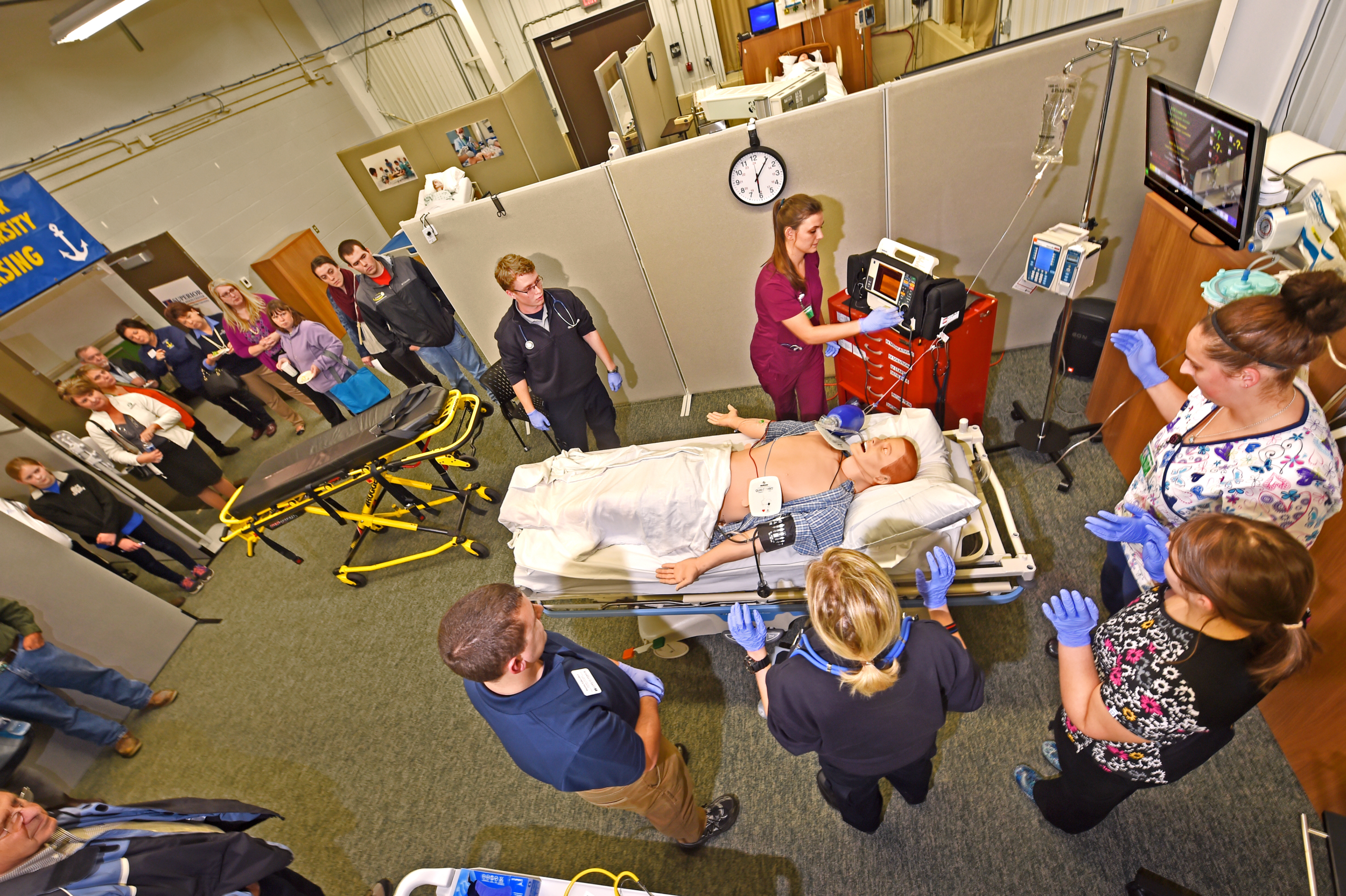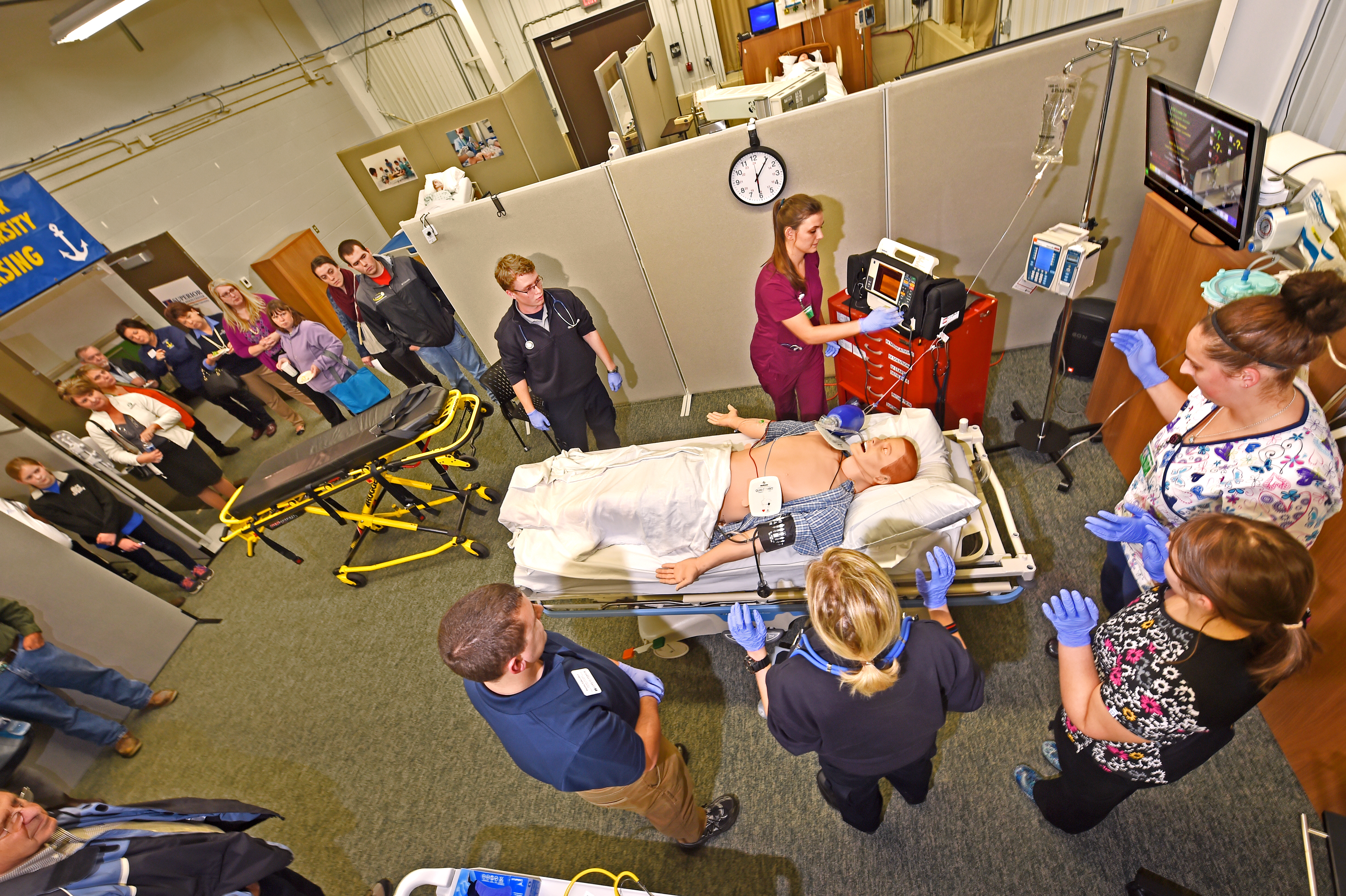Nov 22


—–
SAULT STE. MARIE, Mich. – Lake Superior State University and the Sault (Mich.) Economic Development Corporation invite the public to an open house of LSSU’s Superior Simulation Center, 9 a.m. – 4 p.m., Wed., Sept. 13, in Sault Ste. Marie’s Smart Zone building – also called the Advanced Resources and Technology facility – located at 2345 Meridian St. The event is in conjunction with the inaugural Healthcare Simulation Week, Sept. 11-15, sponsored by the Society for Simulation in Healthcare.
LSSU’s Superior Simulation Center is equipped with million-dollar state-of-the-art patient simulation hardware and software that provide students and regional healthcare professionals realistic clinical training. Center demonstrations will take place throughout the day during the Sept. 13 open house.
Simulation technology, the creation of realistic circumstances in order to teach skills and enhance competencies, is rapidly changing face of education in healthcare and improves patient safety. Using simulation, learners address critical skills including procedures, dynamic decision-making, and communication. Essential teamwork behaviors such as managing high workload and coordinating under stress are practiced.
Simulation-based training encompasses a broad range of experiences, including the use of task trainers, mannequins and virtual reality for technical procedures that range from suturing to delivering babies. It also includes standardized patients (role-players) who act as patients and fully staged scenarios that prepare providers for catastrophic events such as natural disasters or mass shootings.
Healthcare Simulation Week, sponsored by the Society for Simulation in Healthcare (SSH), celebrates professionals who use simulation to improve the safety, effectiveness, and efficiency of healthcare delivery. New technologies are emerging that present new opportunities to improve patient care; as a result, it is an emerging field in which many healthcare professionals are finding a lifelong career.
“This week honors every professional around the world advocating for healthcare simulation in education and practice, research, modeling and design,” said Dr. Christine Park, President of Society for Simulation in Healthcare. “Healthcare systems are embracing simulation as an effective set of strategies that enhances the quality of healthcare.”
“Numerous studies demonstrate that simulation more effectively prepares all types of providers, including physicians, nurses, and first responders across the full spectrum of experience,” Park said. “Simulation provides the opportunity to learn, analyze error, and maintain life-saving skills before working on actual patients.”
For more information on SSH, visit http://www.ssih.org/About-SSH. For more information on LSSU’s Superior Simulation Center, visit https://dev-lssu.gotchahosting.com/division-of-health-and-safety/school-of-nursing/lssu-superior-simulation-center/
CONTACTS: Judy Hering, Lead Simulation Specialist, 906-379-9351 (jhering@lssu.edu); John Shibley, LSSU Public Relations Office, 906-635-2314, (jshibley@lssu.edu)